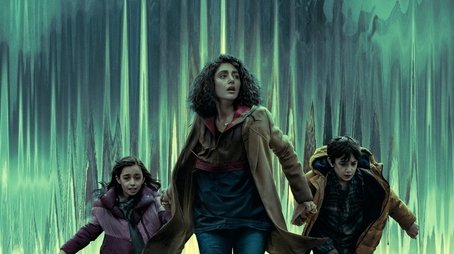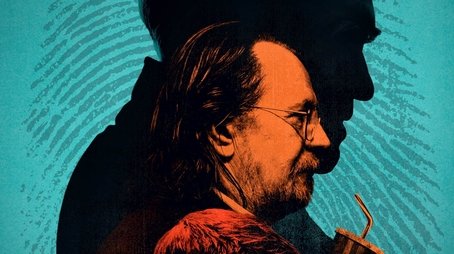
Ask Your Own Question
What is the plot?
Dexter Morgan, a blood spatter analyst for the Miami Metro Police Department, leads a double life as a vigilante serial killer. He was adopted by Harry Morgan, a police officer who recognized Dexter's dark urges and taught him a code to channel his impulses towards killing only those who have escaped justice. The series begins with Dexter's routine life, where he balances his job, his girlfriend Rita, and her two children, Astor and Cody. Dexter struggles with his emotions, often feeling detached from those around him.
The story kicks off with the discovery of a series of gruesome murders in Miami. The victims are all young women, and the police are baffled by the lack of evidence. Dexter, intrigued by the case, begins to investigate on his own, using his skills to analyze the crime scenes. He learns that the killer, dubbed the "Ice Truck Killer," is leaving behind body parts and taunting the police with clues. Dexter feels a connection to the killer, as he too is a murderer, but operates under his own moral code.
As the investigation unfolds, Dexter meets Sergeant Doakes, who becomes suspicious of Dexter's odd behavior. Doakes is a no-nonsense cop who is determined to uncover Dexter's secrets. Meanwhile, Dexter's relationship with Rita deepens, but he struggles to connect with her emotionally. He often reflects on his childhood and the trauma of witnessing his mother's murder, which shaped his dark tendencies.
The Ice Truck Killer continues to escalate his crimes, leading to a shocking revelation: he is actually Dexter's biological brother, Brian Moser. Brian, who was also traumatized as a child, has embraced his violent nature without a moral code. He reaches out to Dexter, trying to convince him to join him in his killing spree. Dexter is torn between his loyalty to his adoptive family and the bond he shares with his brother.
In a tense confrontation, Brian kidnaps Rita and the children, forcing Dexter to choose between saving them and confronting his brother. Dexter tracks Brian to an abandoned warehouse, where he finds Rita tied up and in danger. A brutal fight ensues between the two brothers, showcasing Dexter's internal struggle as he grapples with the idea of killing his own flesh and blood. Ultimately, Dexter manages to overpower Brian, but not before a moment of hesitation that reveals his emotional conflict.
After Brian's death, Dexter is left to deal with the aftermath. He returns to his life with Rita and the children, but the experience has left him more isolated than ever. He begins to question his own identity and the morality of his actions. Meanwhile, Doakes continues to investigate Dexter, growing increasingly suspicious of his activities.
As the season progresses, Dexter faces new challenges, including a new serial killer known as the "Trinity Killer," who becomes a significant threat. Dexter's relationship with Rita becomes strained as he struggles to maintain his facade while dealing with the pressures of his double life. The season culminates in a dramatic showdown with the Trinity Killer, leading to devastating consequences for Dexter and those he loves.
In the final moments of the season, Dexter is forced to confront the reality of his actions and the impact they have on his loved ones. The season ends with a cliffhanger, leaving Dexter's future uncertain as he grapples with his identity as both a protector and a predator.
What is the ending?
Short Narrative of the Ending:
In the final episode of "Dexter," titled "The British Invasion," Dexter Morgan faces the consequences of his actions. He confronts his sister, Debra, who is deeply affected by the events surrounding the Ice Truck Killer and the chaos that ensues. Dexter ultimately decides to leave Miami, faking his own death to escape the life he has led. He drives his boat into a storm, making it appear as though he has drowned. Meanwhile, Debra is left devastated, grappling with the loss of her brother. The series concludes with Dexter starting anew, living a solitary life as a lumberjack in the Pacific Northwest.
Expanded Narrative of the Ending:
As the final episode unfolds, the tension is palpable. The scene opens with Dexter Morgan, portrayed by Michael C. Hall, standing in his apartment, reflecting on the chaos that has enveloped his life. The camera pans to show the aftermath of the previous events, where Dexter's dark urges have led to a series of tragic outcomes. He is haunted by the ghosts of those he has killed and the impact of his actions on his loved ones.
In a pivotal moment, Dexter meets with his sister, Debra Morgan, played by Jennifer Carpenter. Debra is grappling with her own demons, having discovered the truth about Dexter's vigilante justice. The emotional weight of their relationship is evident as they engage in a heart-wrenching conversation. Debra expresses her feelings of betrayal and confusion, struggling to reconcile the brother she loves with the monster he has become. Dexter, in turn, tries to explain his actions, but the chasm between them widens.
As the episode progresses, Dexter realizes that he cannot continue living this double life. He decides to take drastic measures to protect his sister and himself. In a calculated move, he stages his own death. He prepares his boat, the Slice of Life, and sets out into the ocean. The stormy weather mirrors the turmoil within him as he navigates the choppy waters. The scene is tense, with flashes of lightning illuminating his face, revealing the conflict raging inside him.
In a poignant moment, Dexter records a final message for Debra, expressing his love for her and his regret for the pain he has caused. He hopes that she can find peace and happiness without him. As he drives the boat into the storm, the audience is left to wonder about his fate. The boat is seen capsizing, and the screen fades to black, leaving viewers uncertain of whether Dexter has truly perished.
Meanwhile, Debra is left to deal with the aftermath of Dexter's disappearance. The scene shifts to her at the police station, where she is visibly shaken. She receives the news of Dexter's supposed death, and her world crumbles. The emotional impact of losing her brother is palpable, and she is left to navigate her grief alone.
In the final moments of the series, the camera cuts to Dexter, who is now living a solitary life as a lumberjack in the Pacific Northwest. He is seen chopping wood, a stark contrast to his previous life in Miami. The isolation is evident, and the audience is left with a sense of ambiguity about Dexter's future. The series concludes with Dexter looking out into the distance, a man forever changed by his choices, living in the shadows of his past.
As the credits roll, the fates of the main characters are sealed: Dexter has escaped his life in Miami, Debra is left to mourn her brother, and the cycle of violence and secrecy continues to haunt them both. The series ends on a note of uncertainty, leaving viewers to ponder the complexities of Dexter's character and the consequences of his actions.
Who dies?
In the first season of "Dexter," several characters meet their demise, each death intricately woven into the narrative and reflective of the show's themes of morality, justice, and the duality of human nature. Below is a detailed account of the significant deaths that occur throughout the season.
1. Matt Chambers - Circumstances of Death: Matt Chambers is a minor character who is introduced as a victim of the Ice Truck Killer. He is found dead in a gruesome manner, which sets the tone for the series' exploration of serial killings. - When: His death is revealed in the early episodes, specifically in Episode 2, titled "Crocodile." - How: Matt's body is discovered in a gruesome state, showcasing the Ice Truck Killer's signature style of leaving victims in a posed manner. His death serves to highlight the brutality of the killer and the emotional toll it takes on Dexter, who is both fascinated and repulsed by the violence.
2. Sergeant Doakes' Victim - Circumstances of Death: In Episode 3, "The Suitcase," a victim of Sergeant Doakes is mentioned, which adds to the tension between Dexter and Doakes, who is suspicious of Dexter's activities. - When: This death is referenced in the early part of the season, contributing to the narrative of police work and the moral complexities surrounding justice. - How: The specifics of this victim's death are not shown on screen, but it serves to illustrate the darker side of law enforcement and the ethical dilemmas faced by those in the profession.
3. The Ice Truck Killer's Victims - Circumstances of Death: Throughout the season, the Ice Truck Killer, who is later revealed to be Brian Moser, Dexter's brother, kills several individuals. Each murder is meticulously planned and executed, showcasing the killer's psychological profile. - When: The victims are introduced gradually, with their deaths occurring in the background of the main plot, culminating in the final episodes. - How: The Ice Truck Killer's method involves dismemberment and posing the bodies in a way that reflects his psychological games with Dexter. The emotional impact of these deaths weighs heavily on Dexter, who feels a connection to the killer due to their shared bloodline.
4. Brian Moser (Ice Truck Killer) - Circumstances of Death: In the season finale, "Born Free," Dexter confronts his brother Brian, who has been revealed as the Ice Truck Killer. The confrontation is deeply emotional, as Dexter grapples with his feelings of familial loyalty versus his moral code. - When: This pivotal moment occurs in Episode 12, the season finale. - How: Dexter ultimately kills Brian in a moment of self-defense and emotional turmoil. He stabs him, leading to a poignant scene where Dexter is torn between the desire to connect with his brother and the necessity to stop him from continuing his killing spree. Brian's death symbolizes Dexter's struggle with his own identity and the darkness within him.
5. Rita's Ex-Husband, Paul Bennett - Circumstances of Death: Paul is introduced as a troubled character who has a history of abuse towards Rita. His death occurs off-screen but is significant in the context of Rita's character development and her relationship with Dexter. - When: His death is mentioned in the latter part of the season, specifically in Episode 11, "Truth Be Told." - How: Paul is killed while in prison, which is revealed to Dexter through Rita. This event adds complexity to Rita's character and her past, as well as to Dexter's understanding of family and protection.
These deaths are not just plot points; they serve to deepen the exploration of Dexter's character, his moral code, and the psychological implications of his actions as a vigilante serial killer. Each death resonates with the themes of the show, illustrating the fine line between justice and vengeance.
Is there a post-credit scene?
In the 2006 TV show "Dexter," there is no post-credit scene at the end of the episodes. The series typically concludes each episode with a final scene that wraps up the storyline, but it does not include any additional scenes or content after the credits roll. The focus remains on the narrative and character development throughout the episode, leading to a dramatic or suspenseful conclusion before the credits.
What is Dexter Morgan's profession?
Dexter Morgan is a blood spatter analyst for the Miami Metro Police Department.
Who is Dexter's sister and what is her role in the series?
Dexter's sister is Deborah Morgan, a detective with the Miami Metro Police Department, who is often involved in the investigations that Dexter secretly manipulates.
What is the significance of the 'Dark Passenger' in Dexter's life?
The 'Dark Passenger' is a term Dexter uses to describe his inner urge to kill, which he struggles to control throughout the series.
Who is the Ice Truck Killer and what is his connection to Dexter?
The Ice Truck Killer, whose real name is Rudy Cooper, is a serial killer who targets victims in a way that is deeply personal to Dexter, as he turns out to be Dexter's biological brother.
What is the relationship between Dexter and Rita Bennett?
Rita Bennett is Dexter's girlfriend and later becomes his wife; she represents a semblance of normalcy in Dexter's life, and he struggles to balance his dark urges with his desire to be a good partner and father.
Is this family friendly?
"Dexter," produced in 2006, is a crime drama series that follows Dexter Morgan, a forensic blood spatter analyst for the Miami Metro Police Department, who leads a secret life as a vigilante serial killer. The show contains several scenes and themes that may be objectionable or upsetting for children or sensitive viewers.
-
Graphic Violence: The series features explicit depictions of murder and bloodshed, including scenes of Dexter preparing for his kills, which often involve sharp instruments and blood.
-
Murder and Death: The central theme revolves around Dexter's vigilante killings, showcasing the aftermath of violent crimes and the emotional toll on victims' families.
-
Psychological Themes: The show delves into the mind of a serial killer, exploring themes of morality, justice, and the psychological effects of trauma, which may be disturbing for some viewers.
-
Sexual Content: There are scenes that include sexual situations and nudity, which may not be suitable for younger audiences.
-
Strong Language: The dialogue includes frequent use of profanity and adult language.
-
Substance Abuse: Characters are depicted using drugs and alcohol, which may be inappropriate for younger viewers.
-
Dark Humor: The show employs a dark sense of humor that may not resonate well with all audiences, particularly children.
These elements contribute to the show's mature rating and indicate that it is not family-friendly.











